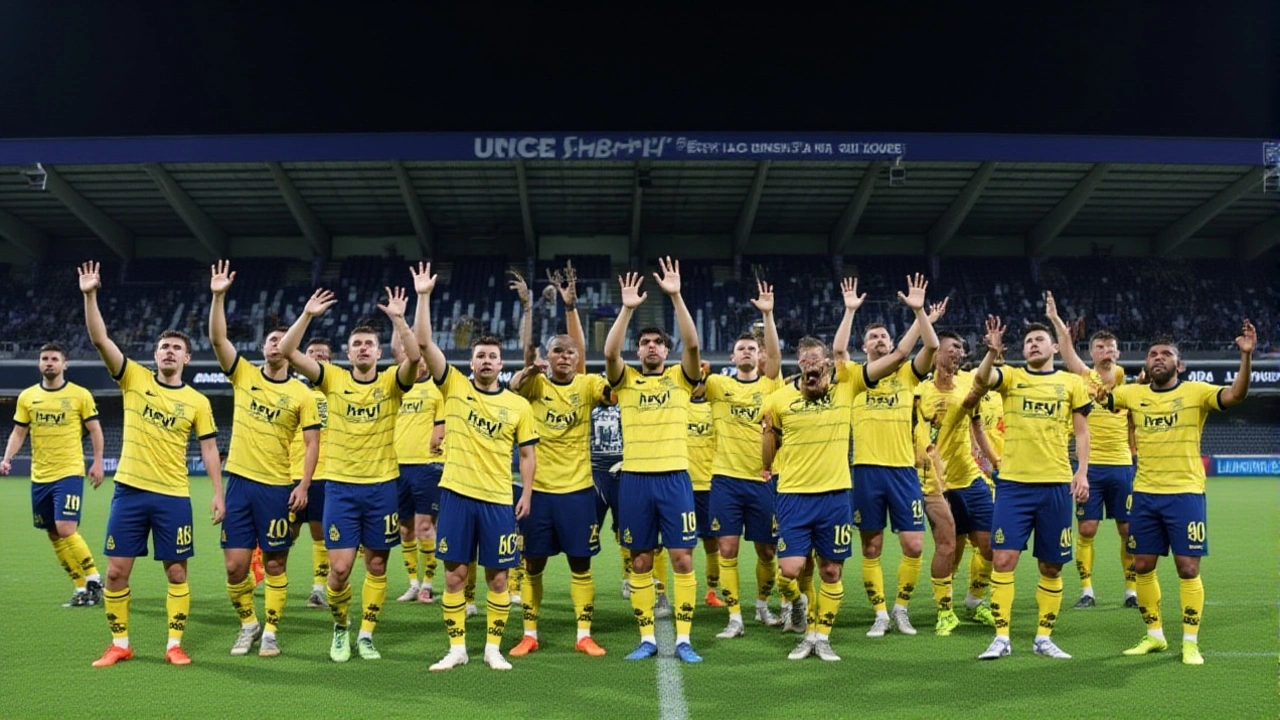Union Saint‑Gilloise ends a 110‑year Belgian Cup drought, finishes second in the league, and reaches the Europa Conference League round of 16, highlighting a remarkable 2023‑24 revival.
When talking about Brussels, the capital of Belgium and the de‑facto headquarters of the European Union. Also known as the EU’s political heart, it draws diplomats, policymakers and business leaders from around the globe. The city sits inside Belgium, a multilingual federal state in Western Europe, giving it a unique blend of local culture and international influence. As a hub for decisions that affect millions, Brussels shapes everything from trade rules to security pacts.
One of the most visible European Union, a political and economic union of 27 member states institutions lives here: the European Commission, the European Parliament and the Council of the EU. The Commission drafts legislation, the Parliament debates it, and the Council gives final approval. This triple‑layered system means Brussels encompasses the core of EU policy‑making. When the Commission announces a new climate package, you’ll see it debated in the Parliament’s chamber just a few blocks away, illustrating the city’s role as a live policy lab.
Because EU rules often set the tone for global trade, Brussels becomes a gateway for African economies seeking market access. Kenya’s recent NSSF contribution hike or Nigeria’s biotech partnership with Brazil and Cuba, for example, are filtered through EU trade guidelines that dictate standards, customs duties and investment safeguards. The European Union therefore influences African trade policies, and many businesses watch Brussels news to gauge how future agreements might affect export tariffs or financing options. In practice, a change announced at a Commission summit can ripple to a Kenyan factory’s cost structure or a South African farmer’s seed pricing.
Security and defense are another arena where Brussels plays a starring role. The city hosts the headquarters of NATO, the North Atlantic Treaty Organization, a collective defense alliance, bringing together military leaders from Europe and North America. NATO’s strategic dialogues often intersect with EU foreign‑policy discussions, especially on crisis zones in Africa or the Middle East. This overlap means that a NATO summit in Brussels can shape EU sanctions, humanitarian aid packages, and even migration policies that directly impact African nations.
Beyond politics, Brussels buzzes with cultural events, tech start‑ups, and a thriving culinary scene that reflects its international flavor. The city’s “silicon valley of Europe” vibe attracts fintech innovators who test solutions that later roll out across EU member states. When a new payment app launches in a Brussels incubator, regulators at the European Commission evaluate it against the EU’s digital market rules, ensuring consumer protection while fostering growth. This cycle of innovation ↔ regulation exemplifies how the city serves as a testing ground for ideas that may later reach African markets via EU‑Africa cooperation frameworks.
The daily news feed we’ve gathered under the Brussels tag mirrors this diversity. You’ll find pieces on Kenyan labor reforms, Nigerian biotech deals, Australian‑New Zealand sports results, and even US travel‑policy updates—all stories that, in one way or another, intersect with EU decisions made in Brussels. Whether it’s a shift in European climate standards that affects South African energy projects or a NATO statement that reshapes security cooperation with African Union partners, the threads all lead back to this city.
Below, the collection of articles gives you a front‑row seat to how Brussels‑centric policies ripple across continents, industries and everyday life. Dive in to see how the European Union’s heartbeat syncs with African ambition, global sports, tech trends and more.

Union Saint‑Gilloise ends a 110‑year Belgian Cup drought, finishes second in the league, and reaches the Europa Conference League round of 16, highlighting a remarkable 2023‑24 revival.